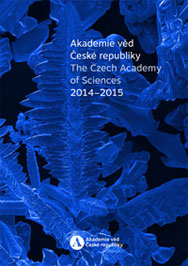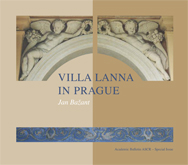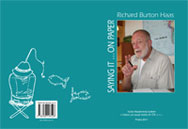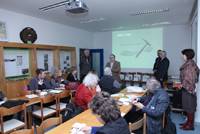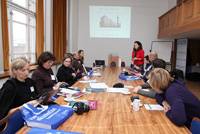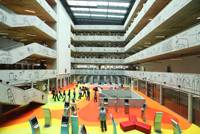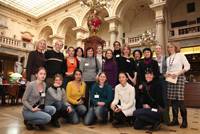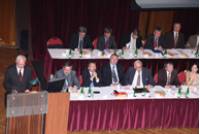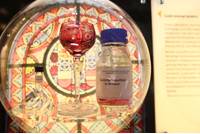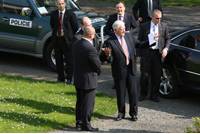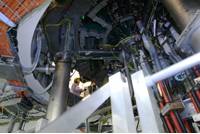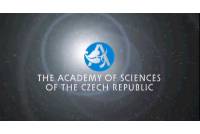
Academic bulletin 02/2001
RESUME
Kaleidoscope - Photo-gallery
A report from the opening ceremony of an exhibition of drawings and watercolors titled "Declassified Corners", which was held on December 12, 2000.
Research and Development Council of the Government of the Czech Republic
Report from the 141st and 142nd sessions of the Czech Government's Research and Development Council
Science - Research - Society
The 17th Assembly of the Academy of Sciences of the Czech Republic - Lecture, Main Program and Discussion
"The Culture of Language - History and Presence" - lecture delivered by Professor Jiří Kraus, director of the Czech Language Institute of the ASCR
The official program was devoted mostly to describing the changes in the status, organization and financing of the Academy under the new law concerning the future of the Academy of Sciences in particular and research in the Czech Republic in general. This was followed by a wide-ranging discussion in which nine members of the Assembly took part. The most important contributions were by Professor Josef Syka, newly appointed head of the Grant Agency of the Czech Republic, and Professor Martin Potůček, First Vice-President of the Research and Development Council of the Czech Government. The attention of the participants of the Assembly was chiefly aroused by a speech presented by Professor Karel Beneš from the South Bohemian University in which he expressed his strong disapproval of the publishing policy of Czech newspapers, in particular the important daily Lidové noviny.
Preparation for the Election of New President of the ASCR and Members of the Academy Council and Council for Sciences
Academic Bulletin includes in this issue a listing of candidates for all positions, listed by particular sections and in alphabetical order.
Council for the Scientific Societies of the Czech Republic
The article is meant to be a pilot volume of the new serial devoted to activities of different Czech scientific societies. Included are an interview with Professor Jaroslav Valenta, President of the Council for the Scientific Societies of the Czech Republic, and Assistant Professor Štefan Zajac, Vice-President of the Executive Committee of the Council for the Scientific Societies.
Portraits from the Archive
The 100th Anniversary of the Birth of Jaroslav Böhm
Jaroslav Böhm, well-known archeologist, was born in 1901. He studied history, prehistory and archeology on the Philosophical Faculty of Charles University. During his studies he was influenced by some of the best-known Czech historians of his time, including Jaroslav Palliardi and Lubor Niederle. He worked at the Archeological Institute of the former Czechoslovak Academy of Sciences and later became one of its main representatives. He focused his study on prehistorical cultures, mainly the history of Slavic nations specifically the Hallstatt and Great Moravia periods.
Events
International Round Table "Trends in the Roma Migration in Europe"
This meeting of experts on the Roma ethnic culture was held on November 24 - 25, 2000 in Villa Lanna in Prague. The main goal was to share the knowledge about the Roma migration from former communist countries to Western Europe.
Report from the Conference "Charlotta Garrigue Masaryk"
On November 10, 2000, the Masaryk Institute of the ASCR organized the conference devoted to the 150th anniversary of birth of Charlotta G. Masaryk, the wife of Tomáš Garrigue Masaryk, the first president of the first Czechoslovak Republic.
Disease "Bovin Spongiform Encefalopathy": Threat for the Mankind?
BSE, also known as "Mad Cow Disease", first appeared in Great Britain, but in recent months it has spread over many parts of Europe. The proteins called prions "responsible" for the disease has affected primarily the cow population and more recently even people who eat the infected beef. Veterinary experts, medical doctors, biologists and journalists participated in the round table discussion focused on this problem. Event was organized by the Department of Public Relations of the ASCR on January 16, 2001.
What Is the Neuralgic Point of Czech Science?
The number one question in the discussion of academic community about the future of Czech science and research is the relation between the Academy of Sciences and the universities and related topics like financing, postgraduate education, evaluation of the institutes, impact factors, etc. These controversial issues were discussed during a gathering organized at the initiative of Impuls 99 on December 18, 2000.
Earthquake 2000 in West Bohemia Ended: Should We Be Aware of Stronger Earthquakes in the New Millennium?
The earthquake in the region of West Bohemia last year was the strongest and one having the longest duration within last 15 years. The Czech scientists from the Geophysical Institute and the Institute of Rock Structure and Mechanics of the ASCR operate the net of seismic stations Webnet and co-operate with experts from the University of Leipzig to be able to minimize as much as possible the impact of stronger earthquakes in future.
Obituary
Doctor Karel Fortýn
Dr. Karel Fortýn, inventor of a breakthrough surgical method in healing cancer called devitalisation, has died unfortunately just as his life-long work was beginning to gain public appreciation. For long years he co-operated with scientists from the Institute of Animal Physiology and Genetics of the ASCR.
Doctor Stanislav Provazník
Doctor Stanislav Provazník of the Philosophical Institute, a member of the Economics Council of the ASCR, died in January 8, 2001. His broad background included history, philosophy and sociology. He had also became known for his works about the changes in human life caused by civilization, science and technologies.
Willard Van Orman Quine
One of the most famous American philosophers, Willard Van Orman Quine, has died at the age of 92. In 1993 he was awarded the František Palacký Gold Medal by the Academy of Sciences of CR.
News - Announcements
Resume
New Books
Chronicle
Topical Supplement
February 1948 - We Also Were There
Selected parts of a book written by Dagmar Šimková titled We Also Were There describing her experiences from the communist concentration camps, where she was imprisoned for 14 years, plus an interview with Doctor Oldřich Tůma, director of the Institute for Contemporary History of the ASCR, should remind us of the unhappy anniversary this month of the communist putsch in 1948.
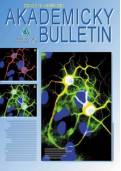

 Česky
Česky


